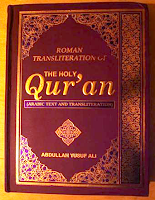Quran - Adam's sons

In the name of God, compassionate & merciful بِسْمِ اللهِ الرَّحْمنِ الرَّحِيمِ
Peace be with you السلام عليكم
Quran, The Recitation. Chapter 5 Al'Maedah, The Tablespread.
Narrated by Allah to Musa 'alayhi'salam to teach the Banu Israel sacrifice and patience.
Note - This story is also narrated in the Bible and a similar narration exists in Hindu scriptures.
"They each presented an animal sacrifice to Allah as a way of showing appreciation: It was accepted from one but not from the other..."
Note - sacrificial rites exist to this day, a simple way of showing appreciation for the Being that created natural produce. It was 'accepted' by way of being blessed from Habeel and not Qabeel for they were being tested on their intention and worship; Habeel excelled his brother.
"Angered and jealous, Qabeel spat out 'I will definitely kill you'..." (5:27)
Note - during another trial moment Qabeel fails to accept Divine Will, instead turning his rage and disappointment towards his brother. This is a historic emotional act in the course of mankind for Muslims, as pride and jealousy for the first time lead to bloody consequences.
"'But surely,' said Habeel, 'Allah always accepts sacrifices of the righteous. | If you will strike your hand against me to kill me, it is not for me to stretch my hand against you and slay you, for I do fear and love Allah, the cherisher of the worlds'." (5:27-8)
Note - Here Habeel explains the concept of sacrifice and patience by refusing to give 'tit for tat'. For Muslims Allah as a loving creator never replies no to forgiveness, support or guidance.
"'For myself, I would rather you kept your sin against me and your own sins, for such a person will be among the companions of the Fire, and that is the reward of those who do wrong'."(5:29)
Note - Habeel tries to show his brother the outcomes of both success and failure. Here accountability is a strong theme since Qabeel plotted to 'take the good deeds' of his brother, while Habeel states that not only will Qabeel mark his malicious acts for his own soul, he will 'take on any evil deeds of his brother too.' A 'companion of the fire' is an archaic expression for residing in Hell as punishment, not necessarily eternally.
"The selfish soul of Qabeel led him to murder his own brother; he murdered him and became himself one of the lost souls." (5:30)
Note- A cause and effect reality in play in that Qabeel's original spite built up to such rage, it became the cause of the first murder. In turn Allah calls this man a 'lost soul' without guidance or rationality. Murder in Islam is the worst form of 'evil deed' as it destroys life which only Allah has the Right to give and take.
"Then as further guidance Allah sent a raven. The bird scratched the ground to create a hole to show Qabeel how to hide the guilt of his brother's body (bury the dead). 'I am wretched!' cried Qabeel, 'Can I not even be like this raven and hide the shame of my crime?' (the body) Then he felt deep sorrow, full of regrets." (5:31)
Note- Allah does not leave as Qabeel's protector, ensuring that he understands death and how to bury the dead virtuously. Maybe this could be his chance to learn and gain reprieve for he cries out in regret for harming his own brother on a pitiful rage. The lesson is that sometimes it is in the lowest of situations a person finally understands the consequences of rushed and evil actions.
(Continuing the narration to Musa alayhisalam)
"After this narration, Allah ordered that if the Children of Israel ever killed a person - unless
it be capital punishment or for ruining society - it would be as if they killed the whole of mankind. Equally, if one person saved a life, it would be seen as though they saved all of mankind..." (5:32)
Note- The end of the narration ends with the greatest compassionate lesson for humanity: Life is valued to such a degree that if one life, any life, was saved or helped it would be equal to every single human life being saved. While this was directed towards the Children of Israel it holds principles for everyone; slow down before emotions control your actions and judgement, treat each person with utmost dignity, defend them and protect them from anything harmful, including green-eyed monsters in yourselves. And love. Learn to love emphatically, whole heartedly.
Adam's family lives only in theory for some. Adam's children (you and me) must implement Islam's so called brotherhood and community. Do not talk or read about it. Show it.
Peace & respect ★
---
Allah: Arabic for God.
Musa: Islamic name for the Biblical Moses.
Alayhi'salam: Islamic phrase for 'peace be upon him', usually read for prophets.
Banu Israel: The Children of Israel, tribes of Yaqub/Jacob.














Ma'sha'allah Sr. Zaufishan. That was beautifully done and such a great theme that we need to remember. The concept of Brotherhood/Sisterhood and general community among Muslims is one that I keep trying to emphasize in my life and express to those who are not aware of it that are willing to listen or in most cases, they have no choice if they are my friends or acquaintances! That's why, one of my favorite or a very meaningful Ayah of Qur'an that I try to remember in various situations in life, is Surah al-Taubah, Ayah 71. Jazak'Allahu Khairan for this. Each of your blog entries are so fascinating and useful and so well written and presented. May Allah (swt) reward you for your efforts and may we all benefit from this sharing of knowledge. Ameen.
ReplyDeleteThanks for sharing that, really good message.
ReplyDelete